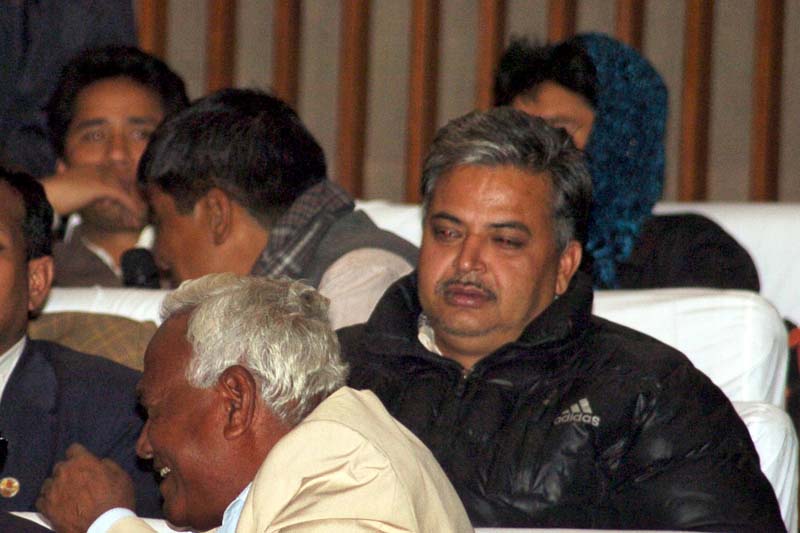Plan to waive Dhungel’s jail term challenged
Kathmandu, May 24
Senior Advocate Dinesh Tripathi today filed a writ petition at the Supreme Court seeking prohibition of waiver of former lawmaker Bal Krishna Dhungel’s jail sentence.
The first hearing of the case has been scheduled for tomorrow.
Dhungel, who was convicted of murdering Ujjan Kumar Shrestha, a resident of Okhaldhunga district, has been serving 20-year sentence in Dillibazar prison. Prison Office, Dillibazar, has recommended waiver of his remaining sentence. Dhungel, who has already served more than 40 per cent of sentence (more than eight years), which is one of the key criteria for waiver, could be released from jail on Republic Day if the Council of Ministers so decides and sends waiver recommendation to the president and the head of state endorses it. Tripathi has stated in his petition that as per Rule 29 of Prison Regulations if a prisoner shows good conduct then s/he can get waiver of up to 60 per cent of jail sentence.
“Dhungel was absconding for long time and was issuing threats to justices of the Supreme Court. He has not apologised to the victim’s family. How can he be a good person in these six months?” he wondered. Dhungel was arrested on October 31 and sent to prison the same day. Tripathi stated in his petition that the government should judiciously use provisions of law, but in this case, the concerned authorities had used legal provisions with mala fide intention to waive Dhungel’s sentence. “Murdering somebody even during war amounts to war crime. There can be no amnesty in war crimes,” he said and added that the government authorities were trying to waive Dhungel’s sentence with malicious intention to benefit a political party. “Such acts encourage impunity and violate the rule of law,” he added.
Meanwhile, Informal Sector Service Centre has also issued a press release opposing the government’s plan to waive Dhungel’s remaining jail sentence.
INSEC Chair Subodh Raj Pyakurel issued a press release stating that as per Section 3 of the manual related to pardon, pending, suspension and commutation of punishment, a person convicted of heinous murder cannot qualify for any waiver, suspension or commutation of jail sentence.
INSEC stated that if Dhungel was given amnesty, it would encourage impunity. It added that the constitution and the prevailing laws did not allow the government to withdraw any criminal case. INSEC added that the government was not aware that giving amnesty to the convict involved in grave human rights violation and atrocities would encourage impunity and weaken democracy.
READ ALSO:






